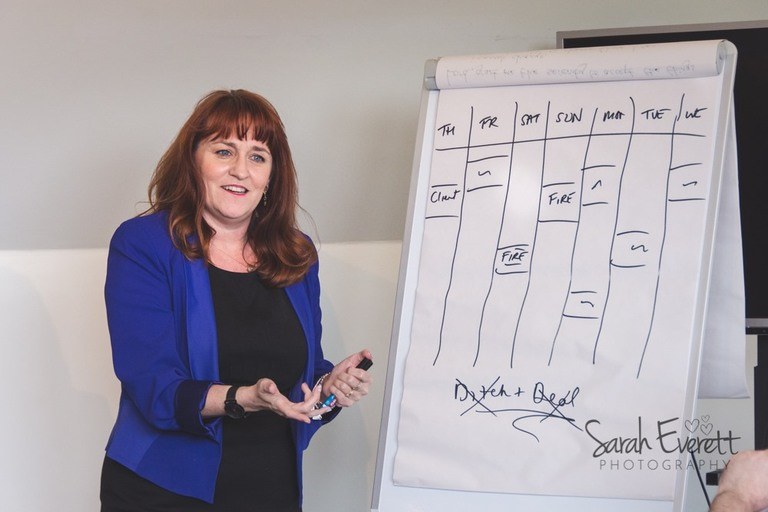A Few Personal Finance Tips for the Busy Businesswoman

It’s easy to think of the modern businesswoman as someone who has all of her finances in perfect order. Despite the fact that women still aren’t supported in business as much as their male counterparts (Our Founder Mandie Holgate is speaking at an event for NatWest related to the Rose Review that raised to concerns over the way funding is given to female entrepreneurs and the obstacles women face). The Telegraph wrote last year that women entrepreneurs are now opening businesses faster than ever before. This contributes to what is ultimately a very positive perception — that of legions of capable, driven women setting off on their own and opening new companies.
In many cases, women like this are undoubtedly very much on top of their finances. But we should also recognise that business savvy and entrepreneurial spirit involve different skills and inclinations than personal financial strategy. Furthermore, many women who are successfully launching businesses are awfully busy, making it difficult to devote real energy toward things like savings or investments.
Because of all this, we wanted to suggest a few personal finance tips specifically for women who might typically be too busy to given these topics too much thought. Hopefully, this will help you to make the most of those hard-earned business profits!
Save With Purpose
We all know that it’s wise to save money when we can. But there is a difference between passive and active saving, and a businesswoman looking to maximise her personal financial potential should practice the latter.
Fortunately, learning to save accurately is really just a matter of mindset. Our past article “Why Savvy Women Save” addressed this mindset with a number of helpful questions and considerations that can help any women to start looking at savings differently. For the most part though, it all boils down to being mindful of potential future needs, budgeting carefully, and finding opportunities to avoid expenses in favour of savings. Those steps can fairly quickly lead you toward a habit of putting more money away, and once you start to build up those savings you can focus on how to keep them secure (and maybe appreciating) for the long term.
Automate Your Budgeting
We just mentioned “budgeting carefully” as a step toward generating savings. And if you’re running a business, chances are you already have a little bit of budgeting savvy. But there’s a difference between managing personal and business finances — and you might not have the same amount of time to put toward the personal end of things.
The good news is that you can basically automate your budgeting these days. This is something you may have even tried with regard to managing business finances. But on the personal level too, you can try a number of different apps and software programs packed with financial management features. These programs can link to your accounts, factor in your planning and preferences, and create full analyses of what you’re making, what you’re spending and saving, and what changes you might need to make. They’ve made it so easy that this is really something everyone who cares about personal finance ought to take advantage of.
Automate Your Investments
Women taking charge of personal finances should also consider investing, though this is certainly something active entrepreneurs have little time. As with personal budgeting though, investing can now be automated — at least to some extent.
This is something that we see primarily in the forex market, where FXCM details the progress that’s been made with trading “robots.” These are programs that can take into account an investor’s preferences and directions and then conduct trades on their own. Basically, you as the investor can input your general strategy, and the bot can do the heavy lifting (and do so more efficiently and exactly than a human trader would anyway). This general sort of practice isn’t entirely exclusive to Forex trading either. Some mobile investment apps now use somewhat similar tools to facilitate stock market investment as well.
In short, you now have ways of putting your income to work for you without having to devote the time and energy to investment that you might have in the past.
Value Your Time Above All Else
Last but not least, we’ll implore all women entrepreneurs to value your time. To some extent, this is about making the most of your minutes on the job, and maximising productivity. Framing an argument around the adage that “time is money, Inc. covered this idea as a means of minimising little failures. Essentially, you can figure out where and when you’ve fallen short, assess how you applied your time related to that episode, and then apply your time more appropriately on the next project.
That’s a valid way to think about your time on the job. But with more direct regard to finances, you should also place an appropriate monetary value on your time. Entrepreneurs tend to get in the habit of working long hours and almost thinking of themselves as separate from their businesses. You might feel that you oversee your business, rather than participating in it. But the truth is that you are setting yourself up as your own employee, and if you don’t compensate yourself fairly, you’ll lay a poor foundation for how you will ultimately benefit from the company.
This doesn’t mean you have to give yourself a massive salary, nor that you can’t sacrifice some for your business. But don’t fall into the trap of feeling that you owe your time to the business regardless of financial benefit!
Hopefully these tips can help you to get the most out of your business ventures. Managing personal finance while running a company is difficult, and there’s no shame in being inefficient about it. But there are ultimately some fairly straightforward steps you can take to do better in this area.





